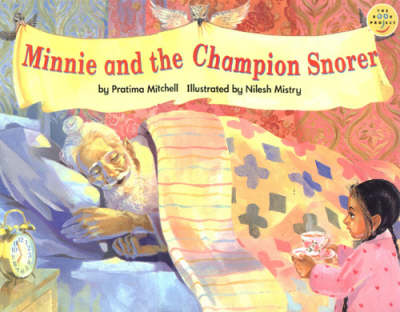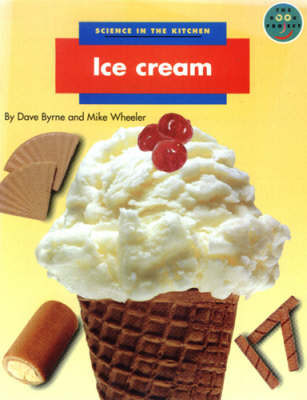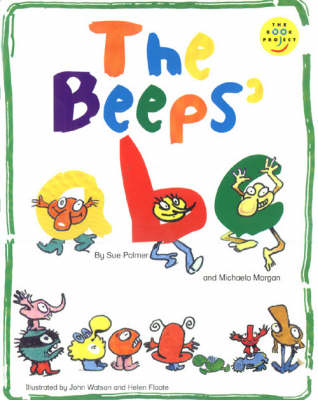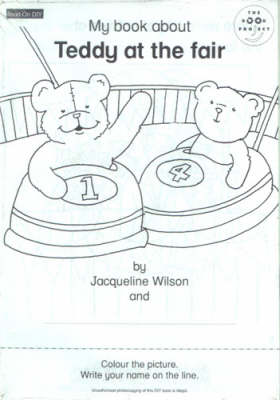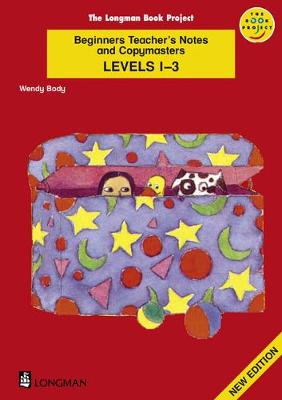Longman Book Project
691 total works
Longman Book Project: Fiction: Band 4: Cluster F: Playtime Rhymes Completer Pack
by Grace Hallworth
Longman Book Project: Fiction: Band 4: Cluster B: Monster Completer Pack
by John Agard
The "Fiction" material offers: a wide range of fiction genres structured and organized to support children's early reading development; large format books for reading aloud as well as books for the younger children to read for themselves; and myths and legends for older children. The "Language" material is covered in four packs. The "Language" 1 material is a structured course in phonics, handwriting and spelling that aims to link the teaching of phonics for initial reading to basic handwriting skills, and later to the teaching of spelling; and it has its own story-context and teaches through games, songs, puppetry and other fun activities. In "Language" 2, 3 and 4, for the middle and upper primary years, the project offers three packs providing a language scheme covering: handwriting, spelling, grammar, presentation, punctuation and assessment. Finally, the "Non-fiction" material offers: useful and informative texts initiating or supplementing topic work; large format starter books for the early years; and a range of different types of information books such as encyclopaedia, atlas, cookbook.
Teaching support including full colour pupil's books, workbooks, copymasters, cassettes, software, posters and assessment materials are also offered as part of the package.
2000 Yrs Keeping Clean Big Bk
by S. Palmer, B Neate, and Fiona Reynoldson
The "Fiction" material offers: a wide range of fiction genres structured and organized to support children's early reading development; large format books for reading aloud as well as books for the younger children to read for themselves; and myths and legends for older children. The "Language" material is covered in four packs. The "Language" 1 material is a structured course in phonics, handwriting and spelling that aims to link the teaching of phonics for initial reading to basic handwriting skills, and later to the teaching of spelling; and it has its own story-context and teaches through games, songs, puppetry and other fun activities. In "Language" 2, 3 and 4, for the middle and upper primary years, the project offers three packs providing a language scheme covering: handwriting, spelling, grammar, presentation, punctuation and assessment. Finally, the "Non-fiction" material offers: useful and informative texts initiating or supplementing topic work; large format starter books for the early years; and a range of different types of information books such as encyclopaedia, atlas, cookbook.
Teaching support including full colour pupil's books, workbooks, copymasters, cassettes, software, posters and assessment materials are also offered as part of the package.
The "Fiction" material offers: a wide range of fiction genres structured and organized to support children's early reading development; large format books for reading aloud as well as books for the younger children to read for themselves; and myths and legends for older children. The "Language" material is covered in four packs. The "Language" 1 material is a structured course in phonics, handwriting and spelling that aims to link the teaching of phonics for initial reading to basic handwriting skills, and later to the teaching of spelling; and it has its own story-context and teaches through games, songs, puppetry and other fun activities. In "Language" 2, 3 and 4, for the middle and upper primary years, the project offers three packs providing a language scheme covering: handwriting, spelling, grammar, presentation, punctuation and assessment. Finally, the "Non-fiction" material offers: useful and informative texts initiating or supplementing topic work; large format starter books for the early years; and a range of different types of information books such as encyclopaedia, atlas, cookbook.
Teaching support including full colour pupil's books, workbooks, copymasters, cassettes, software, posters and assessment materials are also offered as part of the package.
The "Fiction" material offers: a wide range of fiction genres structured and organized to support children's early reading development; large format books for reading aloud as well as books for the younger children to read for themselves; and myths and legends for older children. The "Language" material is covered in four packs. The "Language" 1 material is a structured course in phonics, handwriting and spelling that aims to link the teaching of phonics for initial reading to basic handwriting skills, and later to the teaching of spelling; and it has its own story-context and teaches through games, songs, puppetry and other fun activities. In "Language" 2, 3 and 4, for the middle and upper primary years, the project offers three packs providing a language scheme covering: handwriting, spelling, grammar, presentation, punctuation and assessment. Finally, the "Non-fiction" material offers: useful and informative texts initiating or supplementing topic work; large format starter books for the early years; and a range of different types of information books such as encyclopaedia, atlas, cookbook.
Teaching support including full colour pupil's books, workbooks, copymasters, cassettes, software, posters and assessment materials are also offered as part of the package.
Longman Book Project: Read Aloud (Fiction 1):Mai-Ling
by Sue Palmer and Wendy Body
Longman Book Project: Read Aloud: DIY Assessment
by Sue Palmer and Wendy Body
Longman Book Project: Non-Fiction 2: History Theme Pack: the Victorians Books
by Fiona Reynoldson
Longman Book Project: Read Aloud (Fiction 1): Mai-Ling
by Sue Palmer and Wendy Body
The "Fiction" material offers: a wide range of fiction genres structured and organized to support children's early reading development; large format books for reading aloud as well as books for the younger children to read for themselves; and myths and legends for older children. The "Language" material is covered in four packs. The "Language" 1 material is a structured course in phonics, handwriting and spelling that aims to link the teaching of phonics for initial reading to basic handwriting skills, and later to the teaching of spelling; and it has its own story-context and teaches through games, songs, puppetry and other fun activities. In "Language" 2, 3 and 4, for the middle and upper primary years, the project offers three packs providing a language scheme covering: handwriting, spelling, grammar, presentation, punctuation and assessment. Finally, the "Non-fiction" material offers: useful and informative texts initiating or supplementing topic work; large format starter books for the early years; and a range of different types of information books such as encyclopaedia, atlas, cookbook.
Teaching support including full colour pupil's books, workbooks, copymasters, cassettes, software, posters and assessment materials are also offered as part of the package.
The "Fiction" material offers: a wide range of fiction genres structured and organized to support children's early reading development; large format books for reading aloud as well as books for the younger children to read for themselves; and myths and legends for older children. The "Language" material is covered in four packs. The "Language" 1 material is a structured course in phonics, handwriting and spelling that aims to link the teaching of phonics for initial reading to basic handwriting skills, and later to the teaching of spelling; and it has its own story-context and teaches through games, songs, puppetry and other fun activities. In "Language" 2, 3 and 4, for the middle and upper primary years, the project offers three packs providing a language scheme covering: handwriting, spelling, grammar, presentation, punctuation and assessment. Finally, the "Non-fiction" material offers: useful and informative texts initiating or supplementing topic work; large format starter books for the early years; and a range of different types of information books such as encyclopaedia, atlas, cookbook.
Teaching support including full colour pupil's books, workbooks, copymasters, cassettes, software, posters and assessment materials are also offered as part of the package.
The "Fiction" material offers: a wide range of fiction genres structured and organized to support children's early reading development; large format books for reading aloud as well as books for the younger children to read for themselves; and myths and legends for older children. The "Language" material is covered in four packs. The "Language" 1 material is a structured course in phonics, handwriting and spelling that aims to link the teaching of phonics for initial reading to basic handwriting skills, and later to the teaching of spelling; and it has its own story-context and teaches through games, songs, puppetry and other fun activities. In "Language" 2, 3 and 4, for the middle and upper primary years, the project offers three packs providing a language scheme covering: handwriting, spelling, grammar, presentation, punctuation and assessment. Finally, the "Non-fiction" material offers: useful and informative texts initiating or supplementing topic work; large format starter books for the early years; and a range of different types of information books such as encyclopaedia, atlas, cookbook.
Teaching support including full colour pupil's books, workbooks, copymasters, cassettes, software, posters and assessment materials are also offered as part of the package.
Beginner Teacher's Notes and Copymasters Levels 1-3 Paper
by Wendy Body and Sue Palmer
Practical advice on using the materials in the classroom
Sections on shared reading/writing, and guided reading/writing
Book-by-book teaching notes
Assessment and monitoring including photocopiable record sheet
Accompanying Copymasters provide text, sentence and word level activities, biographical details about authors and illustrators, plus more.

